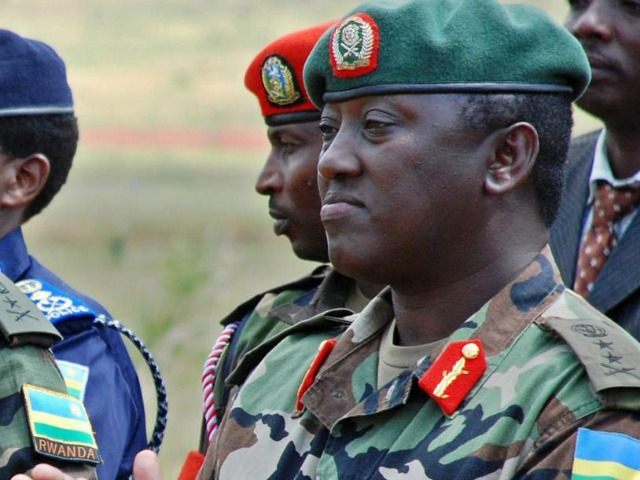Emmanuel Karenzi Karake, head of Rwanda’s intelligence agency, has been arrested in the UK on behalf of Spain for an array of crimes allegedly committed following the end of the 1994 genocide that left 800,000 dead. Rwanda is calling the arrest an “atrocity” and “unacceptable” attempt by Europe to “degrade Africa.”
General Karake serves as Rwanda’s equivalent to the head of the United States CIA, a high-ranking figure that has worked alongside President Paul Kagame in the Rwandan Patriotic Front since the party took control of the country following the genocide. The BBC describes the specific crimes that have led to his arrest this week as “ordering massacres while head of military intelligence in the wake of the 1994 Rwanda genocide.” Among those killed, alleges the Spanish government, are three Spanish citizens who were working for the NGO Medicos del Mundo in Rwanda at the time, providing a legal basis for Spain to indict Karake.
Karake’s name has surfaced for decades in relation to a number of “serious crimes,” reporters allege, in the wake of the genocide. He is nonetheless beloved by many in Rwanda, explains French newspaper La Croix, because, as part of the Tutsi coalition that took over following the genocide, he is credited with contributing to its end. The newspaper notes that in the immediate aftermath of that genocide, Karake is accused of crimes against Hutus—the group that had begun the genocide against the Tutsis—including the assassination of politicians and killing of Hutu refugees in the Democratic Republic of Congo.
Spanish newspaper ABC notes that several other mysterious political deaths have resulted in speculation that Karake—or President Kagame himself—participated in the removal of these individuals, including ex-military chief Faustin Kayumba Nyamwasa and former political ally Patrick Karegeya.
“We take strong exception to the suggestion that he’s being arrested on war crimes,” said Rwandan High Commissioner to the UK Williams Nkurunziza, calling the arrest an “insult.” Foreign Minister Louise Mushikiwabo went further, implying that the arrest is pro-genocide. She called the arrest an “atrocity,” and added that “The Western solidarity to degrade Africans is unacceptable. It is a scandal to stop a Rwandan official on the basis of the pro-genocidal madness.”
The Spanish courts’s proactive approach to bringing Karake to justice, despite the extremely distant tie between Spain and war crimes in Rwanda, highlights the “universal jurisdiction” approach to international crimes that Spain has taken within the past several decades. The most famous case of the application of universal jurisdiction occurred in the case of former Chilean President Augusto Pinochet, who was arrested in the UK as well and taken to Spain to be tried for crimes against humanity. The Spanish government alleged that, since General Pinochet had been accused of torture, a crime against humanity, any country in the world had the jurisdiction to try him for it, due to the gravity of the crime.
More recently, the Spanish government has begun proceedings to apply universal jurisdiction theory against the Nigerian Islamist terror group Boko Haram—now the Islamic State West Africa Province—for mass abduction, rape, and murder. Spain alleges that in at least one attack on a Nigerian town, Boko Haram terrorists assaulted a Spanish nun, thus giving Spain additional ties to the crimes in the west African nation.

COMMENTS
Please let us know if you're having issues with commenting.